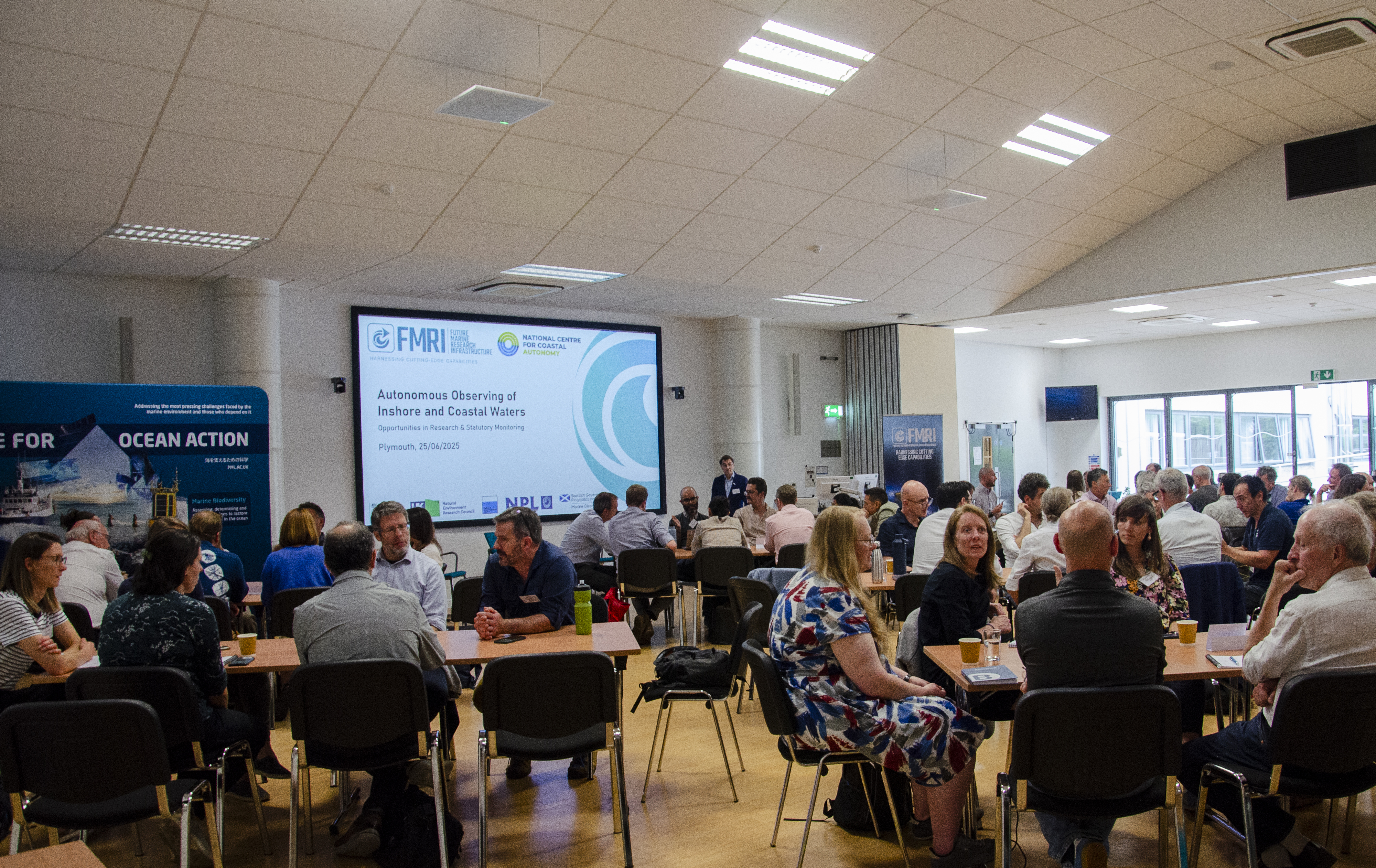The Future Marine Research Infrastructure (FMRI) programme has published a findings and roadmap report from its Coastal Autonomy Workshop, hosted by the National Centre for Coastal Autonomy (NCCA) at Plymouth Marine Laboratory. The event brought together UK academia, industry, government, and international experts to explore the transformative potential of autonomous technologies in addressing complex challenges facing the UK's most critical marine environments.
Download the Coastal Autonomy Workshop Findings and Roadmap here.

The Coastal Autonomy Workshop marked a pivotal step in establishing a Coastal Autonomy Community of Practice, uniting expertise from marine science, technology, regulation, and policy. Over two days, participants examined how emerging autonomous systems can address the complex challenges facing coastal environments – challenges that span ecological, economic, and societal domains.
“Coastal waters are among the most dynamic and complex marine environments and are amongst the most heavily influenced by human activity from shipping and fishing to energy extraction, national security, and the impacts of agriculture, urbanisation, and pollution,” the report notes. These pressures demand not only scientific insight, but robust, actionable evidence to guide policy, regulation, and investment.
The UK is uniquely positioned to lead in this space, offering a world-class marine science community, cutting-edge technologies, and deep cultural ties to the sea. The workshop laid the groundwork for a national roadmap to advance autonomous coastal observation, supporting both research and statutory monitoring.
Key findings from the report
Collaborative and adaptive approach
Unlocking coastal autonomy requires strong governance, cross-sector collaboration, and ongoing engagement with communities and end-users.
Co-design with stakeholders
Early assessment of user needs, open dialogue, and shared experiences are essential to build trust and accelerate adoption.
Strategic use of autonomy
Autonomy should complement - not replicate - traditional monitoring, focusing on areas where it delivers the greatest impact and using proxies to extend observational reach.
Robust governance and coordination
National and international frameworks are needed to support integration, regulation, and strategic alignment, including clear operating models and visual roadmaps.
Sustained investment
Long-term funding for R&D, demonstrators, infrastructure, and deployments is critical to drive innovation and support a ‘fail fast, scale what works’ culture.
Digital infrastructure as a backbone
Prescriptive digital systems with traceable repositories and well-defined data architectures are vital for resource visibility and effective data sharing.
Ecosystem-wide collaboration
Success depends on synergy across researchers, industry, regulators, and stakeholders - focused on high-impact opportunities and clearly articulated benefits.
Read more about the Coastal Autonomy Workshop convened by FMRI, hosted by the National Centre for Coastal Autonomy (NCCA) at Plymouth Marine Laboratory (PML), and delivered in partnership with Defra, National Oceanography Centre, National Physical Laboratory, and the Scottish Government.
Download the Coastal Autonomy Workshop Findings and Roadmap.
- Log in to post comments